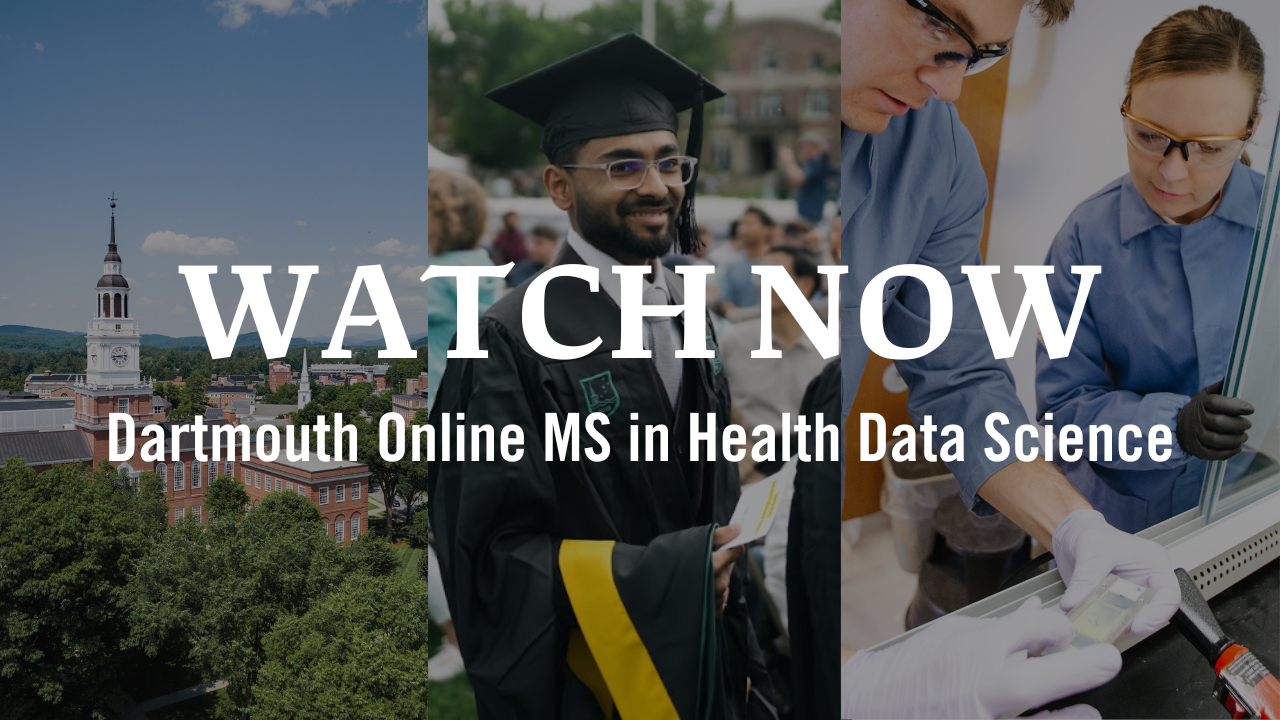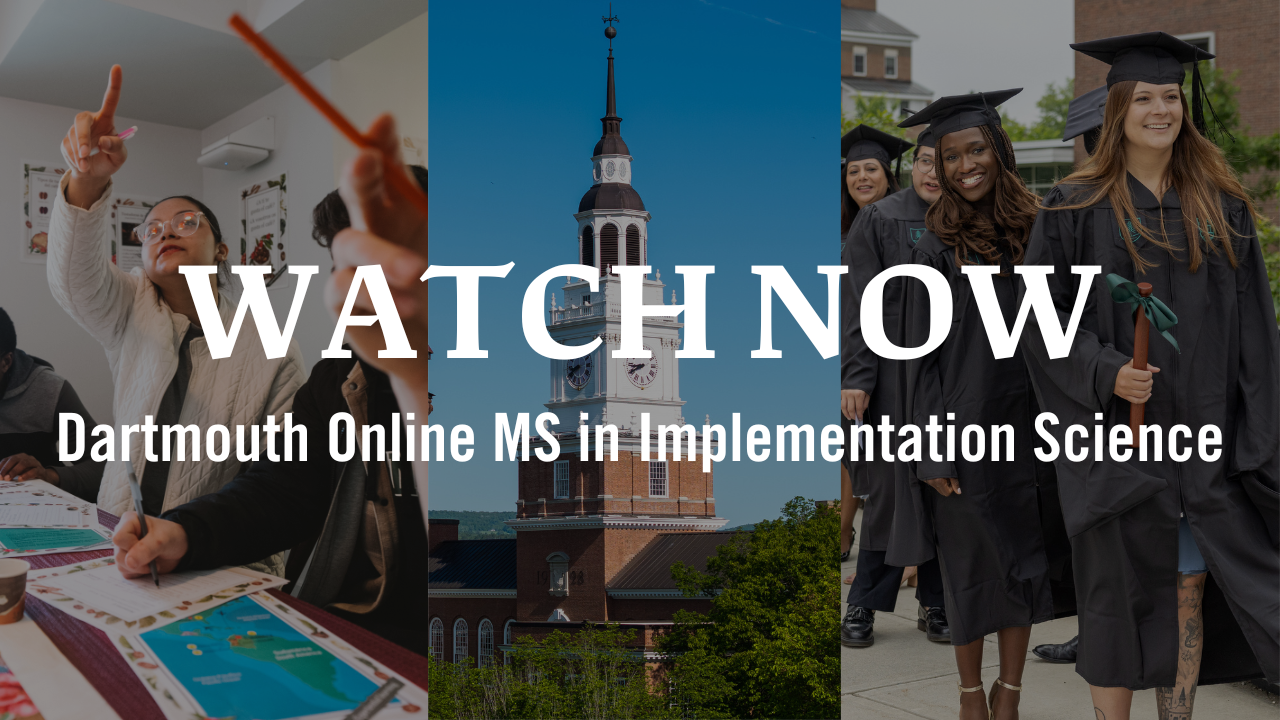Below, you will find detailed information about the Master of Science in Health Data Science program, including curriculum structure, experiential learning opportunities, the academic calendar, and course descriptions. Use the links below to navigate quickly:
- The academic year is divided into four terms.
- Throughout the academic year, students will take core and elective courses, with core coursework emphasizing topics in theoretical and applied epidemiology, bioinformatics, and statistical modeling. Toward the second half of the year, students will wrap up remaining electives and complete capstone coursework.
- Students need to complete a minimum of 12 units to graduate; core courses are required, and students can choose from several elective options to complete their degree.
- Students take classes full-time, with approximately 55 hours per week combined coursework and class-time.
- The capstone course will take place in the final, Summer term.
- Classes begin in September with graduation in August of the next year.
To see the courses are offered by term for the MS in Health Data Science On-Campus program, view the 2025-2026 calendar here. Beginning 2026, this program will begin in the fall. View the 2026-2027 calendar here.
- Demonstrate core competency in bioinformatics, biostatistics, and epidemiology
- Demonstrate skills required to pursue careers in data science as applied in biomedical settings, including:
- Ability to apply statistical methodologies on large datasets (“big data”)
- Correct use of statistical models that consider data design, encoding, and organization
- Ability to develop and apply algorithms for processing and analysis of biomedical data
- Ability to apply machine learning algorithms
- Ability to produce effective data visualizations which narrate central points for presentation and reporting.
The core coursework of the Master of Science degree in Health Data Science builds a firm foundation in programming, biostatistics, and classification algorithms including machine learning, and builds the skills to apply these methods with real world data.
The Health Data Science curriculum includes a 2-unit capstone that challenges students to refine their data science skills while working on a real-world applied data project. Beyond showcasing technical knowledge, the capstone experience also provides the training in critical skills needed for professional success, such as scientific writing, presentation skills, and the ability to translate data science findings to non-data science stakeholders.
Core Coursework
The core coursework of the MS in Health Data Science covers units that build a firm foundation in this essential field.
To find the course descriptions for the courses listed below, please navigate here.
- HSE 101 Foundations of Programming
- HSE 101.1 Intermediate Programming for Data Scientists
- HSE 103 Foundations of Data Sciences
- HSE 108 Machine Learning
- HSE 119 Applied Biostatistics OR HSE 120 Foundations of Biostatistics I: Statistical Theory
- HSE 121 Foundations of Biostatistics II: Statistical Modeling
- HSE 177 Methods of Statistical Learning for Big Data
- HSE 194 Biostatistics Journal Club
One of the following*:
- HSE 122 Biostatistics III: Modeling Complex Data
- HSE 124 Advanced Biomedical Data Analysis
- HSE 126 Analysis of Densely Collected Longitudinal Data
- HSE 146 Foundations of Bioinformatics I
- HSE 130 Foundations of Epidemiology I
- HSE 180 Data Visualization
- HSE 181 Data Wrangling
- HSE 185.5 Essential Skills for Career Development and Leadership
- HSE 185 Masters Capstone Experience
- HSE 700 Responsible and Ethical Conduct of Research does not count toward the units of coursework required for the MS degree.
- Students who matriculate Fall 2021 and beyond may not take more than 4 units of coursework per quarter unless approved by QBS administration and leadership.
Elective Courses
Through the Health Data Science elective course options, students can dive deeper into advanced concepts such as applied epidemiology, biostatistics, machine learning, molecular biology, and healthcare systems.
- HSE 110 Integrative Biomedical Sciences Seminar
- HSE 110.5 Integrative Biomedical Sciences Seminar Project
- HSE 119 Biostatistics I: Applied Biostatistics or QBS 120 Foundations of Biostatistics I: Statistical Theory for the Quantitative Biomedical Sciences
- HSE 122 Biostatistics III: Modeling Complex Data
- HSE 123 Biostatistics Consulting Lab
- HSE 124 Advanced Biomedical Data Analysis
- HSE 126 Analysis of Densely Collected Longitudinal Data
- HSE 131 Foundations of Epidemiology II: Theory and Methods
- HSE 132 Molecular Biologic Markers in Human Health Studies
- HSE 133 Clinical Epidemiology
- HSE 136 Applied Epidemiological Methods
- HSE 139 Advanced Methods in Health Services Research
- HSE 140 Decision & Cost Effectiveness Analysis
- HSE 146 Foundations of Bioinformatics I
- HSE 147 Genomics: From Data to Analysis
- HSE 192 Health Informatics
- HSE 193 Independent Journal Club
- HSE 194 Biostatistics Journal Club
- HSE 195 Independent Study
- HSE 271 Advanced Epidemiology Journal Club (not offered every year)
- COSC 122 3D Digital Modeling
- COSC 124 Computer Animation: The State of the Art
- COSC 169 Topics in Computer Systems
- COSC 189 Topics in Applied Computer Science
- COSC 258 Operating Systems
- COSC 267 Introduction to Human Computer Interaction
- COSC 274 Machine Learning and Statistical Data Analysis
- COSC 276 Artificial Intelligence
- COSC 278 Deep Learning
- COSC 281 Principles of Robot Design and Programming
- PH 114 Contemporary Issues in Biotechnology: The Practitioner's Perspective (0.5 unit)
- PH 115/HSE 144 Value and Resource Allocation
- PH 122/HSE 129 Survey Methods
- PH 125/HSE 135 Introduction to Qualitative Methods for Public Health & Healthcare Studies (0.5 unit)
- PH 128: Health Systems (0.5 unit)
- PH 131/HSE 138 Patient Centered Health Communication(0.5 unit)
- PH 140 Applying Health Statistics (1.5 units)
- PH 151/HSE 145 Environmental Health Sciences and Policy(0.5 unit)
- PH 154/HSE 141 Determinants of Health Inequities (0.5 unit)
- ENGM 179.1 Strategy (0.5 unit)
- ENGM 181 Marketing
- ENGM 182 Data Analytics
- ENGM 183 Operations Management
- ENGM 184 Introduction to Optimization Methods
- ENGM 188 Law for Technology and Entrepreneurship
- ENGM 189.1 Medical Device Commercialization (0.5 unit)
- ENGM 189.2 Medical Device Development (0.5 unit)
- ENGM 190 Platform Design, Management, and Strategy
- ENGM 191 Product Design and Development
- ENGM 204 Data Analytics Project Lab
- ENGS 102 Game-theoretic Design, Learning and Engineering
- ENGS 162 Basic Biological Circuit Engineering
- ENGS 262 Advanced Biological Circuit Engineering
- BIOL 176 Advanced Genetics
- MATH 100 Topics in Probability Theory
- MATH 106 Stochastic Processes with Applications
- PSYC 174 Computational Neuroscience: Brain Engineering
- Communicating Science
- No more than 3 journal clubs or 1.5 units of journal club courses may count towards elective credit.
- No more than 1 independent study may count towards elective credit.
- No more than 1 independent journal club may count towards elective credit.
- Seek administrative approval for non-listed electives. Email Monica Espinoza for additional information.
FINAL SCHOLARSHIP DEADLINE: FEBRUARY 1
REGISTER FOR AN UPCOMING VIRTUAL INFORMATION SESSION:
DISCOVER DARTMOUTH ALUMNI
Receive the latest updates on applying to Dartmouth
TALK TO OUR ADMISSIONS TEAM
Courtney Theroux
DIRECTOR, ENROLLMENT MANAGEMENT
Amanda Williams
ASSOCIATE DIRECTOR, ADMISSIONS AND RECRUITMENT
Hannah Kassel
ASSISTANT DIRECTOR, ADMISSIONS AND RECRUITMENT
Mia Soucy
ADMISSIONS MANAGER
ALUMNI CAREER STORY
Dominique Lee, MPH’20
CEO, Planned Parenthood New England,



Receive updates on applying to Dartmouth
TALK TO OUR ADMISSIONS TEAM
Courtney Theroux
DIRECTOR OF ENROLLMENT MANAGEMENT
Amanda Williams
ASSOCIATE DIRECTOR OF ADMISSIONS AND RECRUITMENT
Hannah Kassel
ASSISTANT DIRECTOR, ADMISSIONS AND RECRUITMENT
Mia Soucy
ADMISSIONS MANAGER

